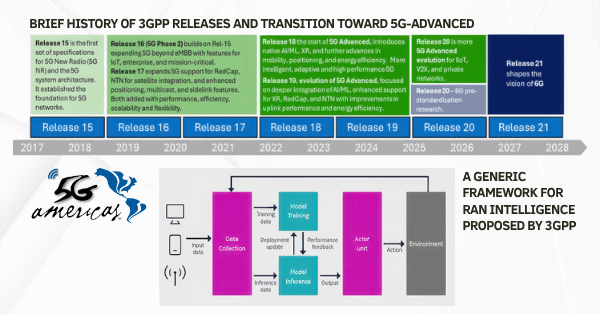Exploring the Digital Divide: Are Telecom Giants Meeting the Needs of SMEs?
In the rapidly evolving landscape of telecommunications, the role of telecom giants in supporting small and medium-sized enterprises (SMEs) has come under scrutiny. SMEs account for a significant portion of global economic activity, so their access to advanced digital infrastructure is crucial. However, there appears to be a disparity in how telecom services are distributed among large enterprises versus smaller businesses.
How Telecom Providers Are Falling Short in Supporting SMEs
At the heart of the issue is the allocation of telecom resources. Historically, telecom operators have prioritized high-revenue-generating large enterprises and government accounts, often overlooking the unique needs of SMEs. This oversight can be partly attributed to the unclear positioning of the SME segment within the organizational structure of many telecom companies, leaving these smaller entities in a service limbo.
Despite SMEs being pivotal economic drivers, representing up to 90% of businesses globally and contributing significantly to GDP and employment, they frequently lack proportionate access to crucial digital tools like high-speed broadband, cloud computing services, and advanced cybersecurity measures. This digital divide not only hampers their operational efficiency but also stymies potential growth and innovation within the sector.
From Service Providers to Digital Partners: Telecom’s Evolving Role for SMEs
Recent discussions, such as those highlighted at major conferences like the MWC, suggest a shifting perspective among telecom leaders. Companies like Just Telecom have begun transitioning from traditional service models to becoming more holistic digital enablers. This shift involves redefining their roles to not just provide connectivity but also offer a suite of services that cater specifically to the digital transformation needs of SMEs.
For instance, initiatives focusing on the “three Bs” – broadband, banking, and business tools – aim to equip SMEs with the necessary resources to enhance their competitiveness and digital presence. These include offering affordable and reliable high-speed internet, facilitating access to digital financial services, and providing scalable cloud solutions and cybersecurity protections tailored to SMEs.
How 5G and Cloud Technology Can Transform SMEs
The advent of 5G and cloud technologies presents a tremendous opportunity for SMEs to leapfrog into high-efficiency operational models. Telecom giants are uniquely positioned to facilitate this transition by offering tailored packages that leverage these technologies. For example, 5G can enable faster, more reliable internet connections, supporting IoT devices and real-time data analytics, which are crucial for SMEs aiming to enhance productivity and decision-making processes.
Moreover, multi-cloud and edge computing solutions can provide SMEs with flexible, scalable, and secure IT infrastructure, mitigating the need for significant upfront capital investments in hardware. These technologies also allow SMEs to access advanced data analytics and machine learning capabilities, leveling the playing field with larger corporations.
Overcoming Digital Transformation Challenges for SMEs
Despite the potential benefits, the transformation journey for SMEs is fraught with challenges. The primary hurdle is the complexity of deploying and managing advanced digital technologies. SMEs often lack the in-house expertise to maximize these tools, necessitating ongoing support and training from telecom providers.
Additionally, the issue of affordability cannot be overlooked. SMEs are sensitive to price due to typically tighter budget constraints compared to larger enterprises. Telecom providers must consider innovative pricing models that offer flexibility and scalability, such as pay-as-you-grow or subscription-based services, to make digital adoption more accessible for SMEs.
Why Telecom-Technology Partnerships Are Key to SME Success
To address these challenges effectively, telecom companies need to forge strategic partnerships with technology providers, regulatory bodies, and even financial institutions. These collaborations can help create an ecosystem that supports the diverse needs of SMEs by providing not only technical solutions but also regulatory and financial support.
For example, partnerships between telecoms and fintech companies could facilitate easier access to digital payment platforms and financing options. Collaborations with cloud service providers like Google Cloud or Amazon Web Services can offer SMEs robust, scalable infrastructure without the need for heavy investments.
Closing the Digital Gap: How Telecom Giants Can Empower SMEs
The potential of SMEs to drive economic growth and innovation is immense, but realizing this potential depends significantly on their ability to access and effectively use advanced digital technologies. Telecom giants have both the opportunity and the responsibility to support this crucial sector by adapting their services to meet the unique needs of SMEs.
As the digital landscape continues to evolve, the success of SMEs will increasingly depend on their digital agility. Telecom providers, by transforming from mere service providers to partners in digital enablement, can play a pivotal role in ensuring that SMEs are not only participants but also beneficiaries of the digital revolution.
Ultimately, the proactive involvement of telecom giants in reducing the digital divide will not only empower SMEs but will also lead to a more dynamic, inclusive, and competitive market. The time is ripe for telecom companies to reevaluate and enhance their strategies to foster a more equitable digital ecosystem, where SMEs can thrive and contribute effectively to the global economy.






























